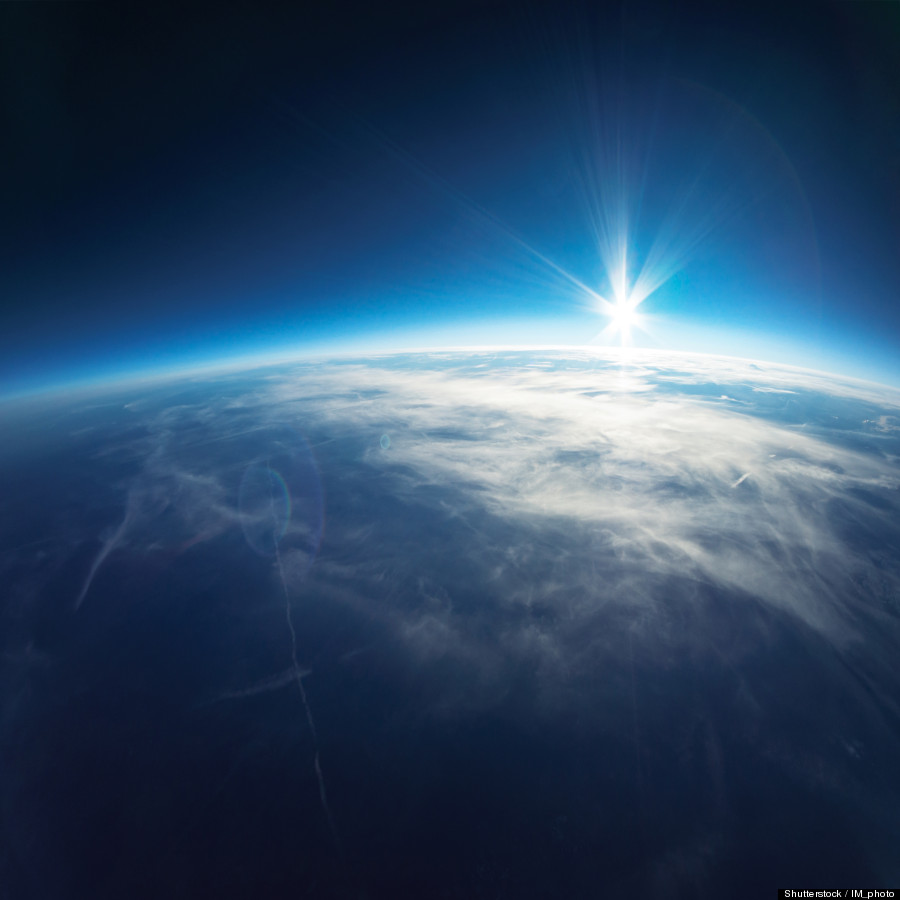The ocean can be described in an endless number of ways. It's refreshing, beautiful and humbling. It's vast, mysterious and terrifying. It's magnificence has inspired countless novels, films, documentaries, songs, and HuffPost articles.
If it were a god, it would already have millions of devoted disciples -- divers, scientists, surfers, biologists, ocean-going enthusiasts -- who are in constant awe of its power and beauty. That's why, for World Oceans Day, we wanted to explore the reasons we are all drawn to the sea.
Below, 16 reasons the ocean, our beloved resource, is one of the most fascinating elements on our planet Earth.
1. The ocean covers over 70 percent of our planet's surface and contains about 99 percent of the living space on Earth.
According to the MarineBio Conservation Society, humans have only explored less than 10 percent of that "living space," which pretty much means we know absolutely nothing about the blue marble of a world we live in: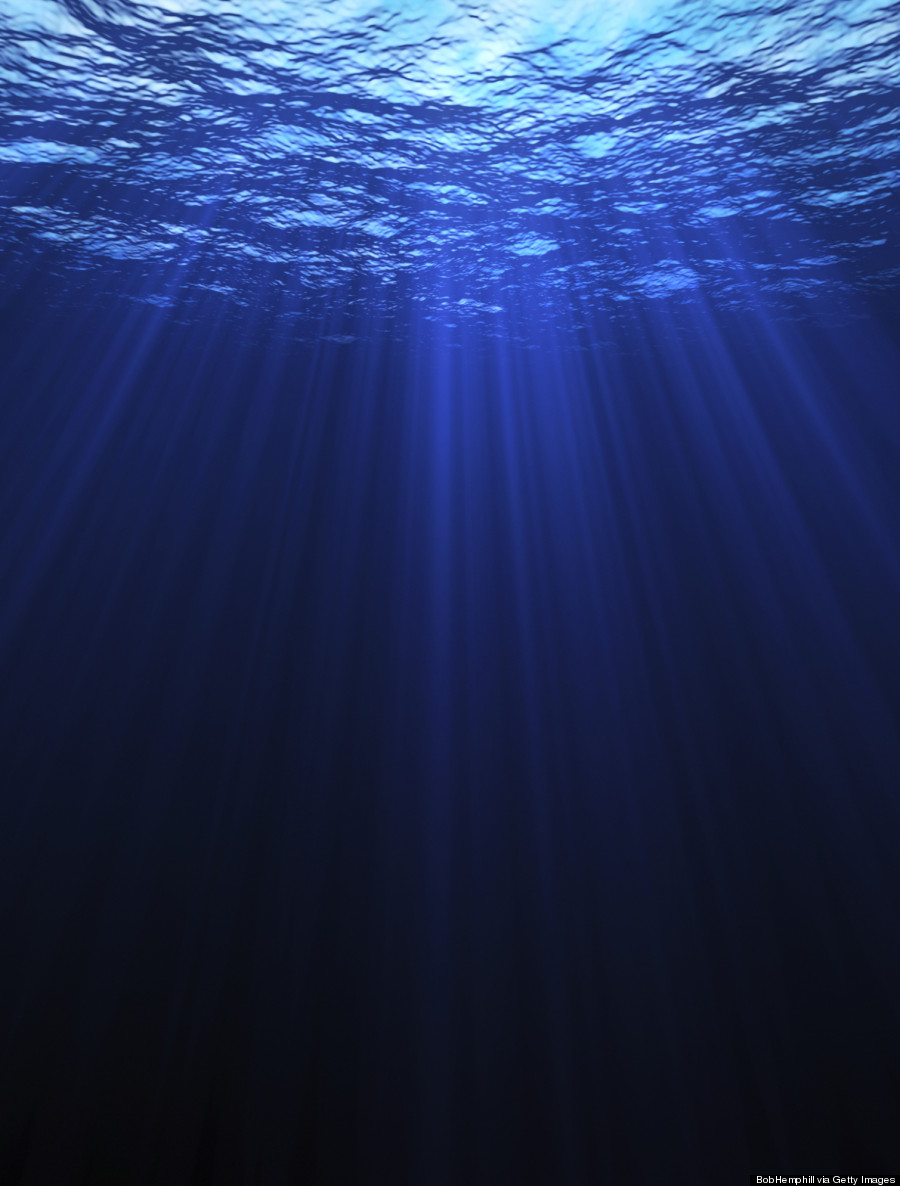
(OK -- now that we have you thoroughly freaked out, read on...)
2. An estimated 2.2 million species live in the ocean.
Between 50 to 80% of all life on Earth is under the sea: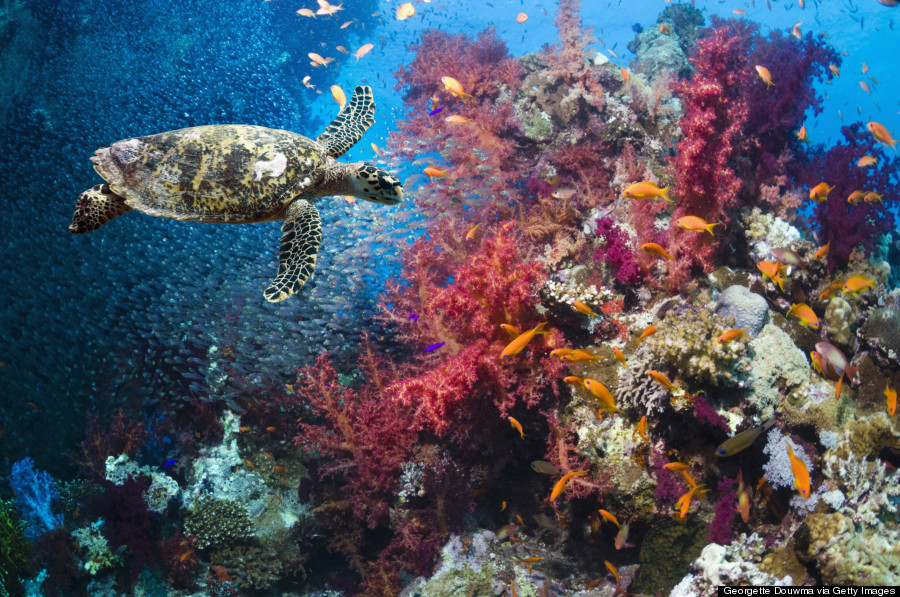
3. Like this jellyfish that ages backwards.
The Turritopsis dohrnii (a.k.a. the "immortal" jellyfish) has the ability to transform itself into a younger state: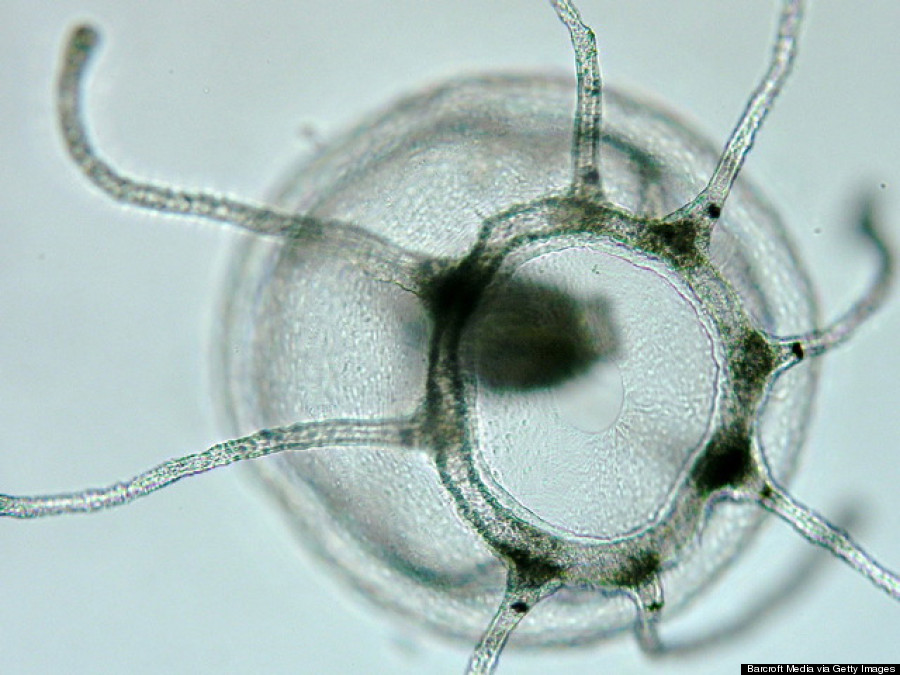
4. Or this horseshoe crab.
They've existed on Earth for over 300 million years. That's older than the dinosaurs: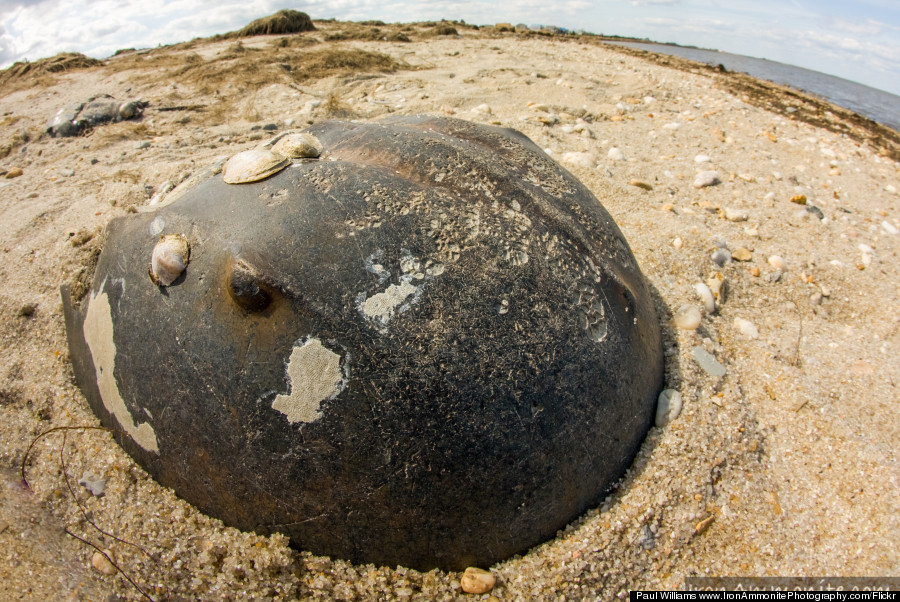
5. Or the largest and heaviest animal to ever exist.
The blue whale, which is listed as endangered under the Endangered Species Act, can grow as long as 100 feet and weigh up to 330,000 pounds: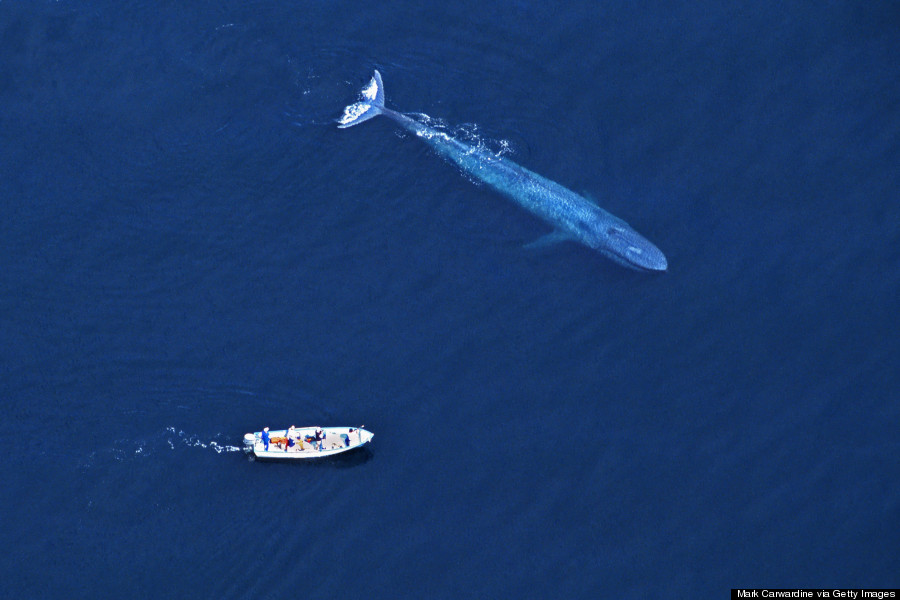

6. But let's talk about the one fish that everyone is absolutely fascinated with -- sharks.
Love 'em or hate 'em, these toothy fish are one parts terrifying, a thousand parts misunderstood. While they are considered an apex predator of the sea, you are at a higher risk of dying from a mosquito bite than a shark: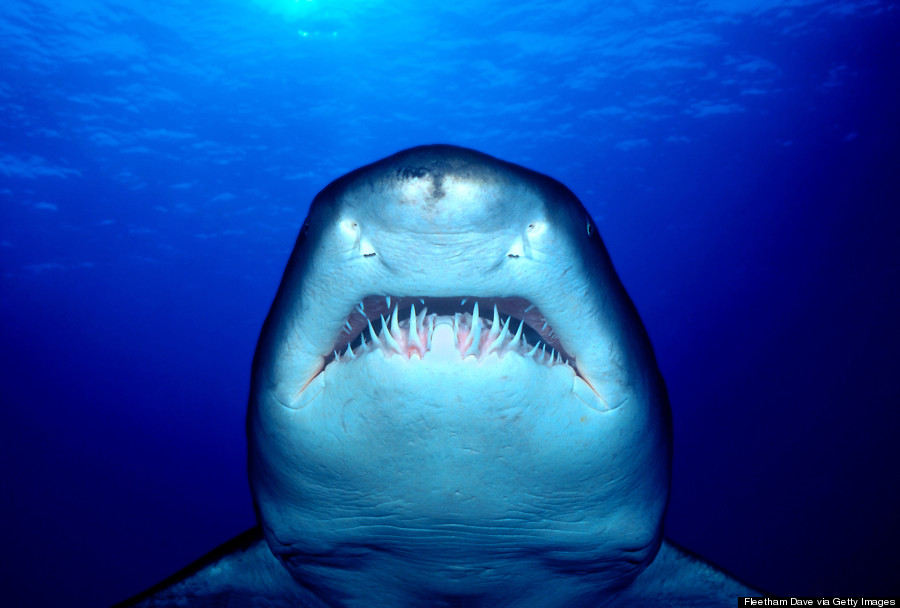
7. Sharks are actually designed to be the ultimate ocean navigators.
Shark skeleton is made of cartilage and its skin is covered with tiny toothlike scales, making them fierce swimming machines. And contrary to common belief, research has shown that sharks have sharp vision and are ten times more sensitive to light than humans -- perfect for preying in dark waters: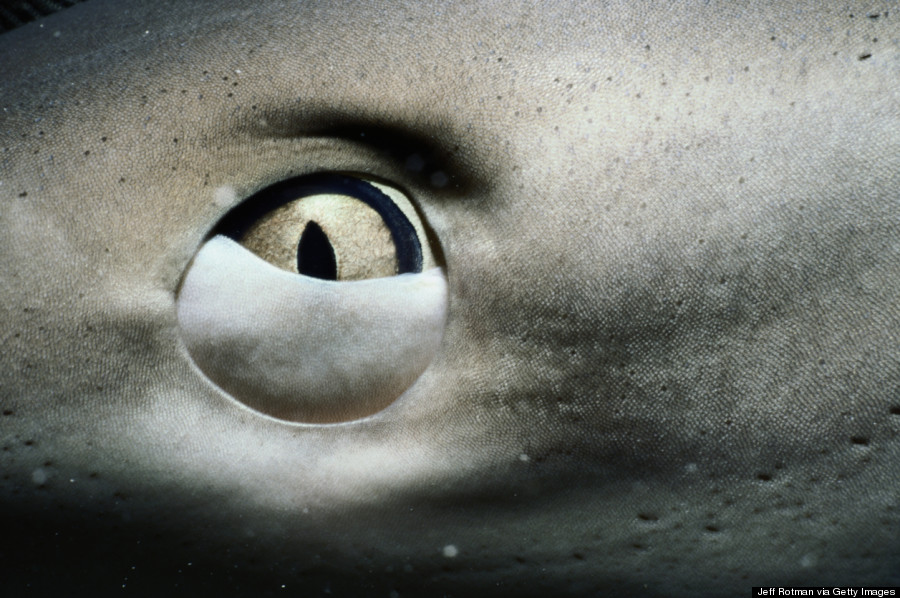
8. Speaking of dark waters, the average depth of the ocean is around 14,000 feet.
That's more than 40 football fields, from end zone to end zone. There, magnificent, bioluminescent, and sometimes even scary creatures roam about a dark world, like this viperfish: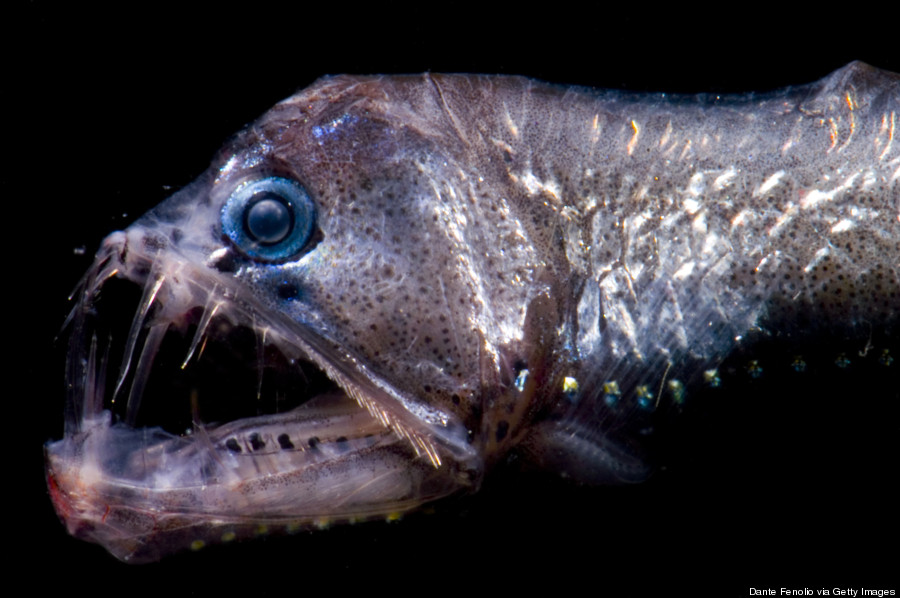
And bioluminescent jellies, also known as ctenophore: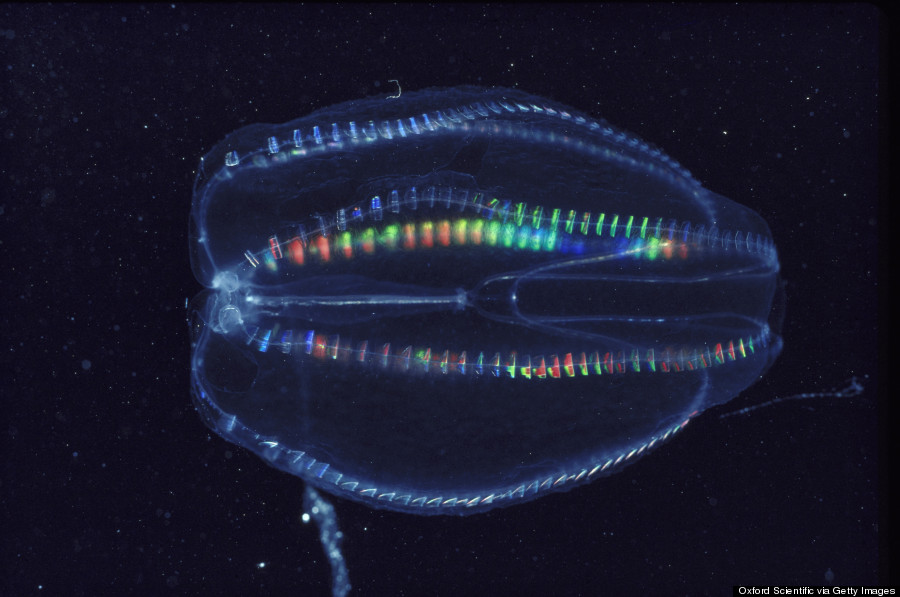
9. But, in lighter waters, where the sun rays glow, a magnificent forest emerges.
Kelp forests have the ability to grow up to 18 inches per day, creating the perfect, nutrient-rich playground for seals, sea lions, whales and birds: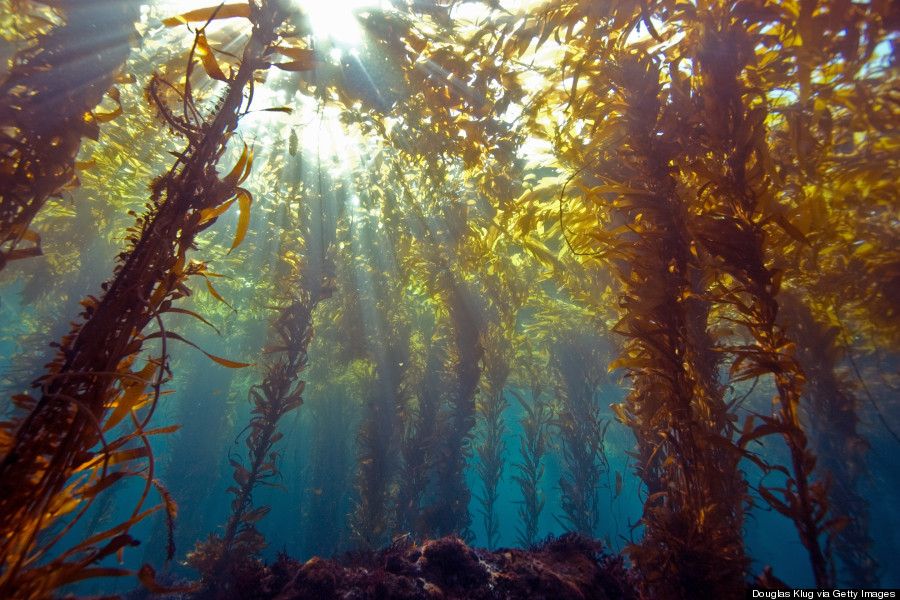
And adorable sea otters: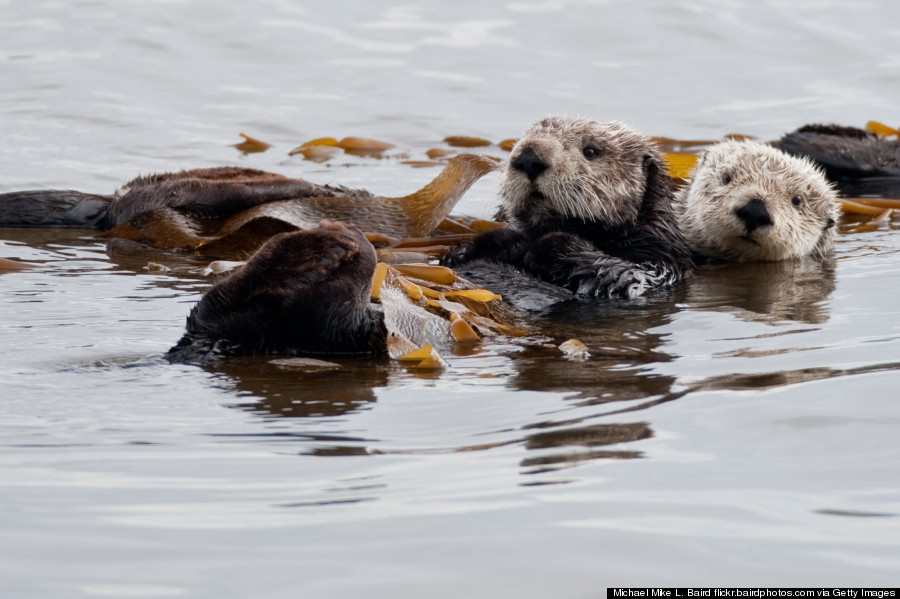
10. The world's ocean is arguably the most important resource we, as citizens of Earth, have.
Aside from the oceans comprising most of our planet, it is a source of food for hundreds of thousands of species. Sadly, overfishing and other human-created pollution are responsible for harming our greatest resource. If we continue, we may eventually run out of fish, setting a domino effect of disaster. That could mean no more beautiful, thriving reefs like this: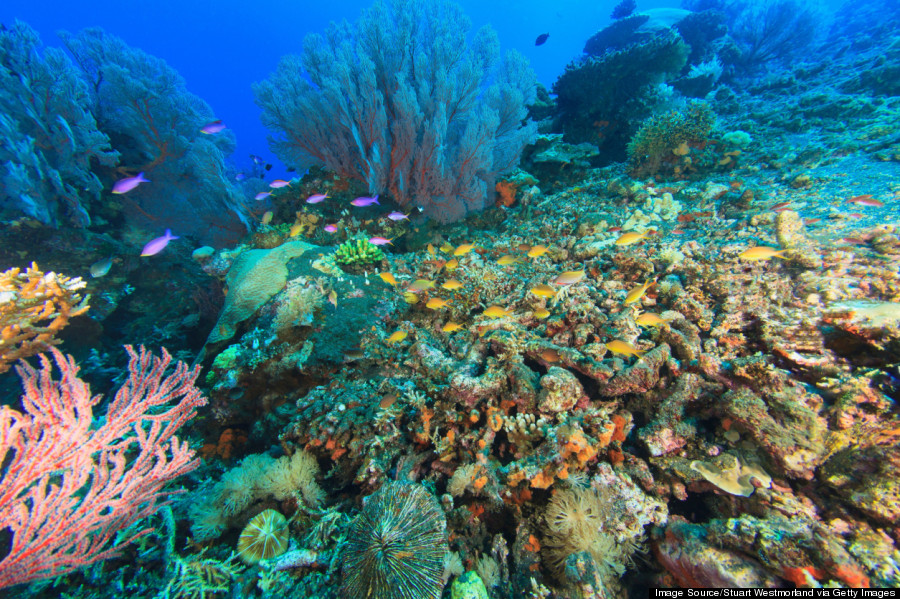
Or this mesmerizing bait ball -- press play and watch the hypnotic fish gather by the thousands to protect themselves from predators like dolphins, sharks and birds (yes, aerial attackers swooping in from above):
11. And don't get us started on how naturally clever the ocean can be.
Ever thought, 'Silly Spongebob, how can there be a lake under the sea?' Turns out, we are the silly ones. In parts of the world, like in the waters of Yucatan Peninsula in Mexico, hydrogen sulfate mixes with saltwater, making it heavier than regular saltwater and causing it to sink to the bottom and flow like a river: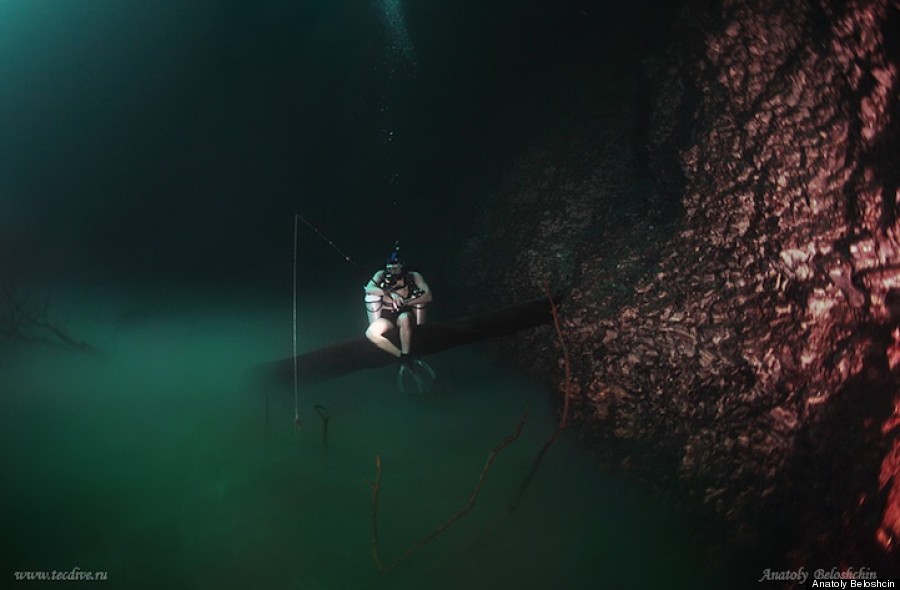
12. The sea is actually way more physically diverse than that tropical beach on your phone's wallpaper.
It's frigid and cold: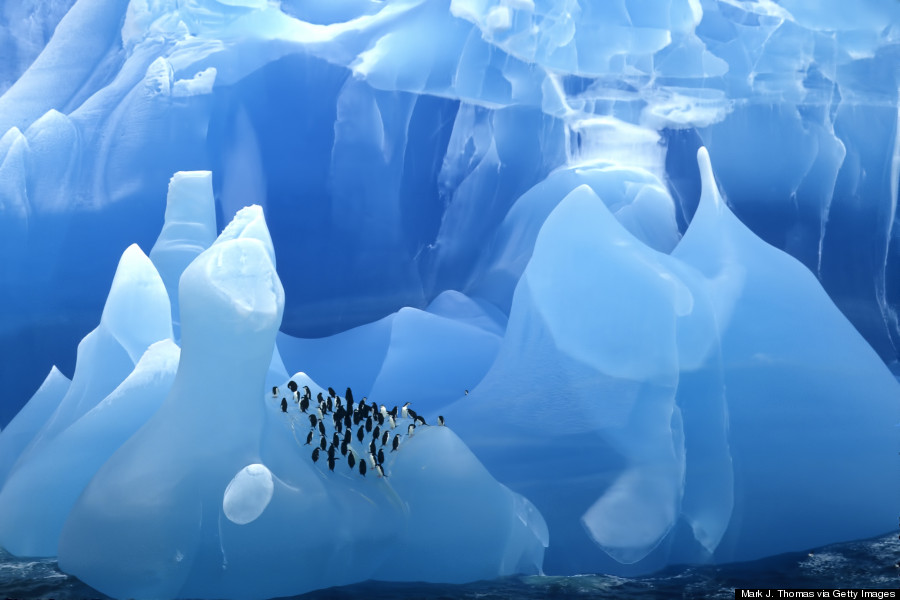
It's fiercely rough and stormy: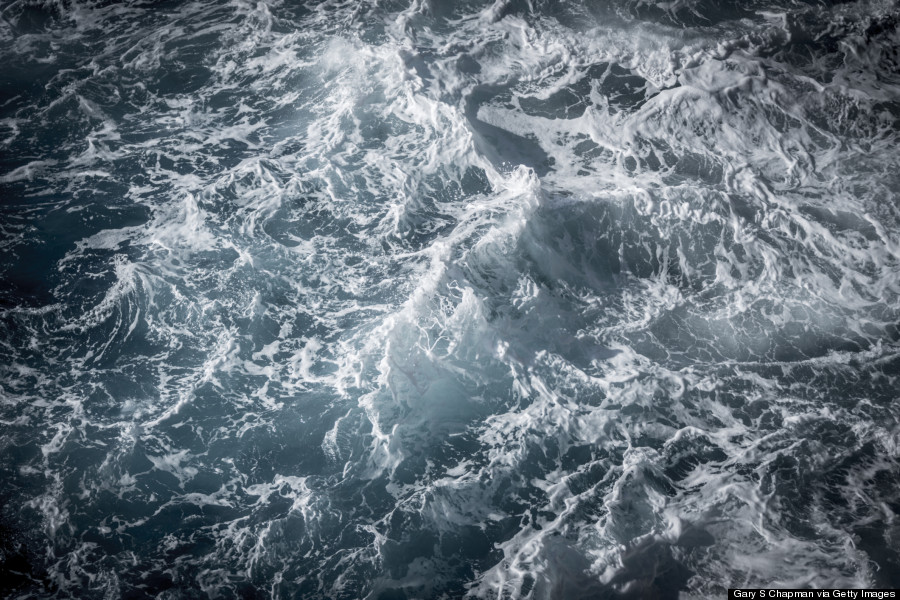
But, of course, it's also warm, crystal clear and incredibly inviting: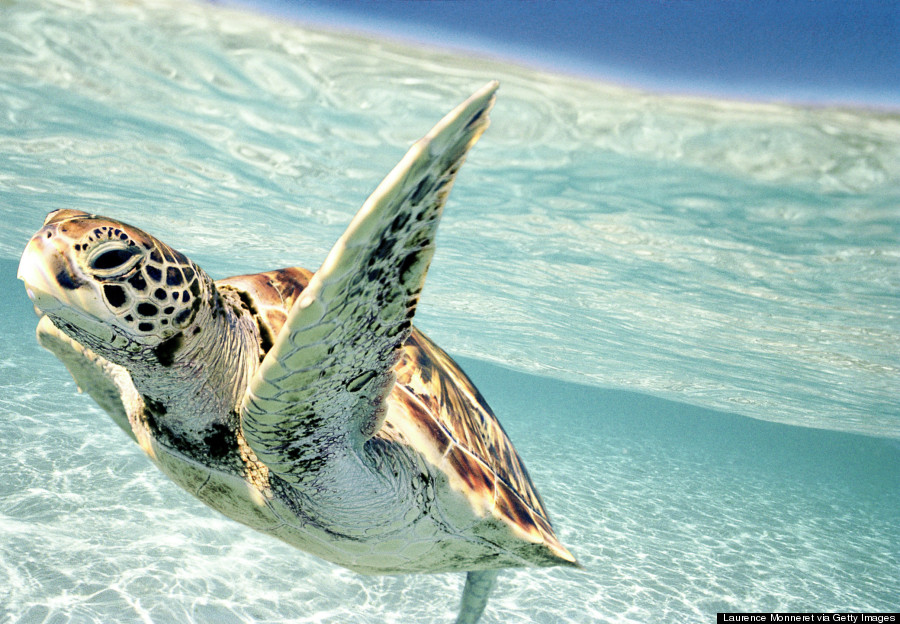
13. And when the elements align in perfect unison, it's the ultimate playground.
But remember, the ocean isn't just a playground, nor is it only ours. It is a resource we must protect if we want to continue to enjoy it like this:
14. Can we just step back for a moment and take in just how simply beautiful the ocean is?
By the way, submersing yourself in the salty sea is actually good for your mental and physical health: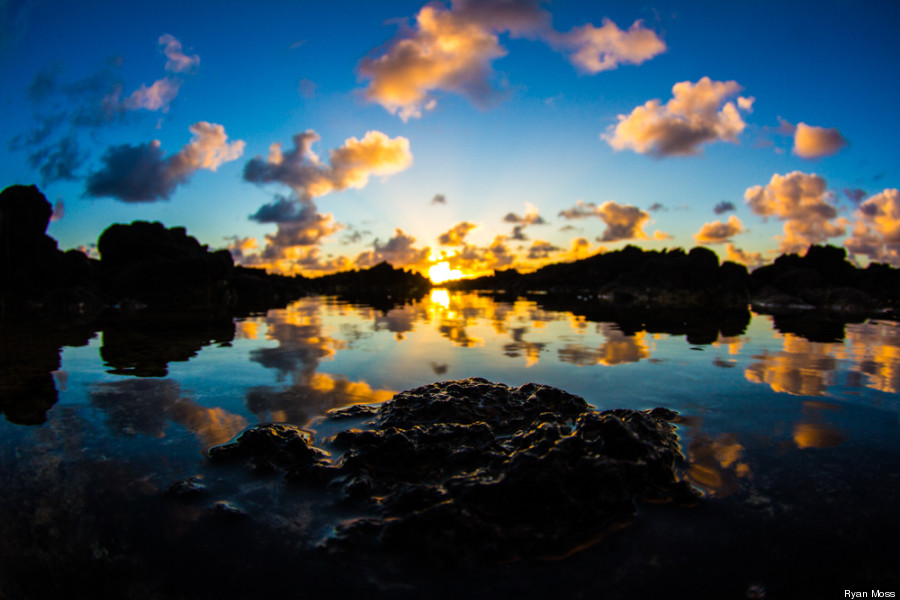
Deep breath in...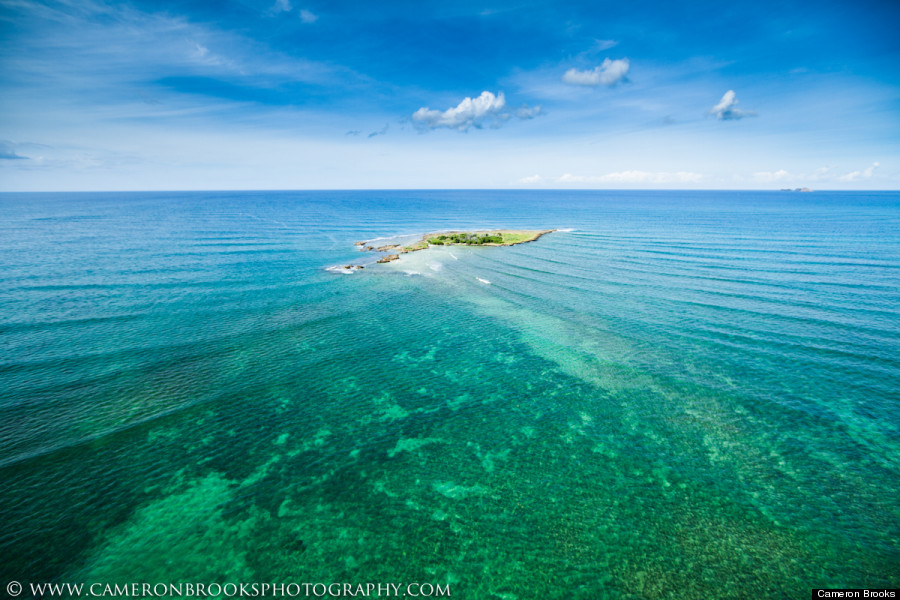
Deep breath out...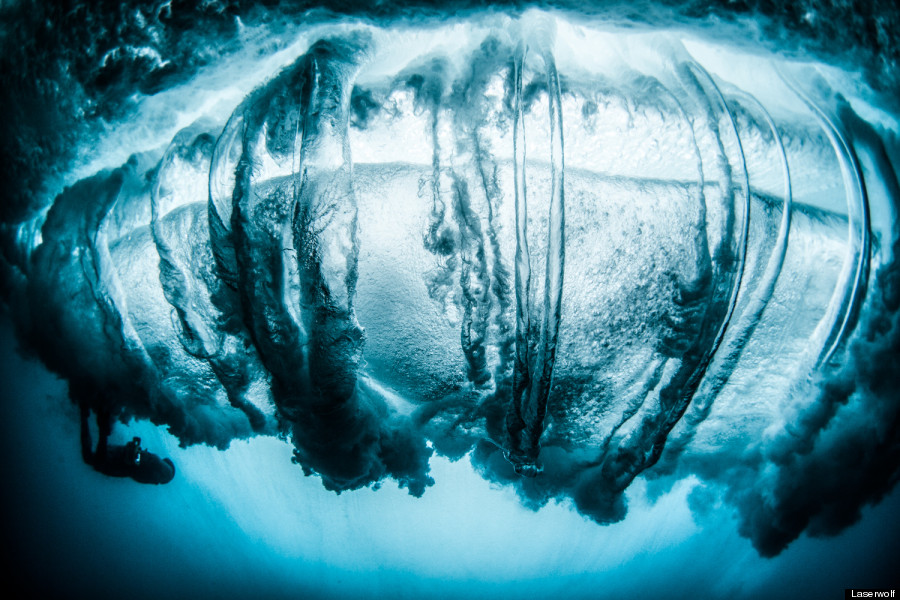
15. While we humans don't have gills (yet), the ocean can be one of our greatest spiritual sanctuaries.
Anyone who spends a lot of time in the ocean -- surfing through waves, diving in deep waters, sailing across the world -- can tell you just how humbling the power of the sea is. It can heighten the senses and can give you the most heartfelt and emotional thrill of your life: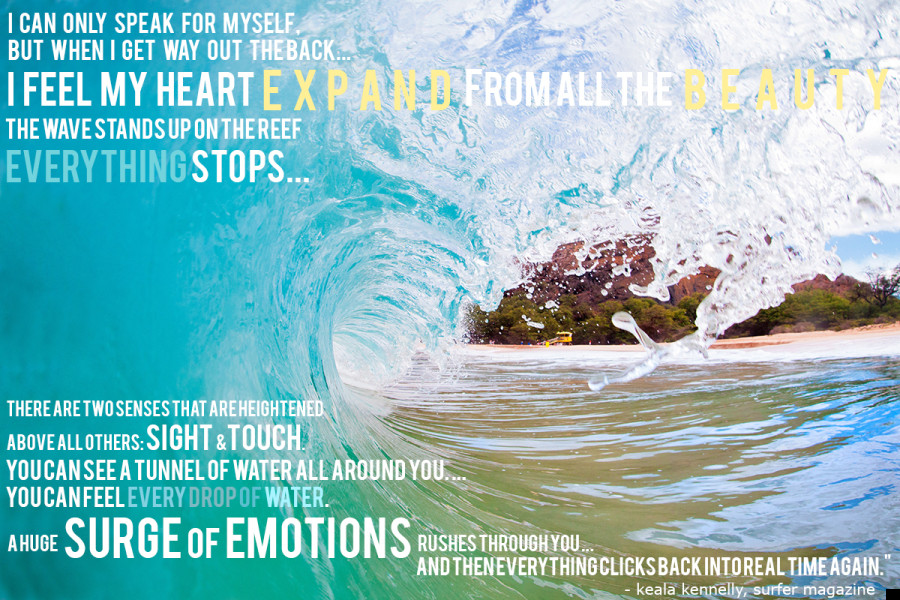
16. The ocean, whether we realize it or not, is the world's most shared resource, jointly used by billions of humans all across the globe.
The sea provides us with air to breathe (ocean plants provide half of the world's oxygen), gives us food to eat (around 3.5 billion people rely on the ocean as their primary food source), and even helps boost our economy (one in every six jobs is marine-related). The Polynesian Voyaging Society recently began a three-year voyage around the world in a wooden canoe, using ancient wayfaring techniques, to prove that we are all connected and need to take care of Mother Earth, just as she takes care of us: